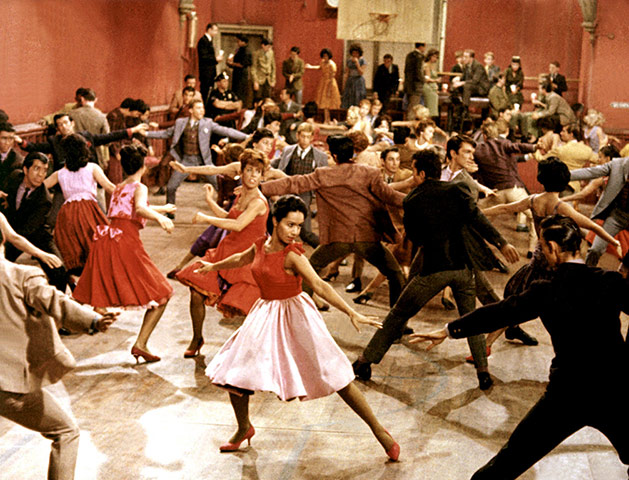
Bernstein’s Romeo and Juliet update, complete with balcony scene, was originally about Irish-Polish Catholics and Jews in Manhattan and called East Side Story. Jews were replaced by Puerto Ricans, the musical was retitled, Stephen Sondheim supplied sharp lyrics, Jerome Robbins the unforgettable choreography – the rest is history. The 1961 film made the work a worldwide hit. Mambo gained new life as a shirt-waving encore for Gustavo Dudamel and the Simón Bolívar Youth Orchestra of Venezuela. Lou Reed created his own cross-city song in Romeo had Juliette: “Betwixt between the East and West he calls on her wearing a leather vest”
Photograph: Everett Collection/Rex Features Photograph: Everett Collection / Rex Feature
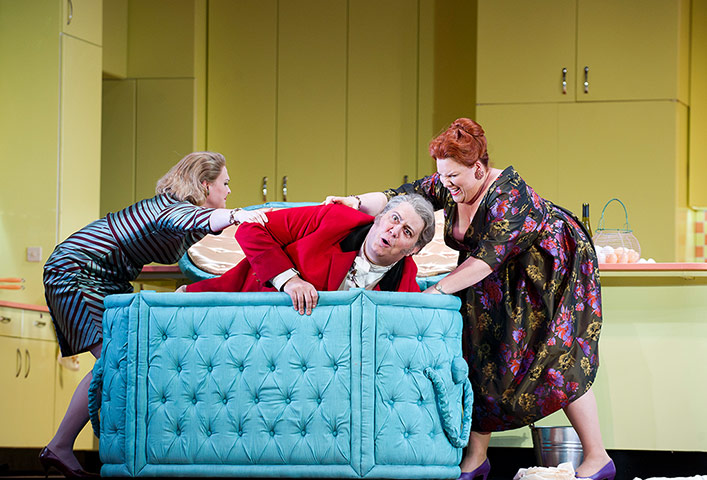
Verdi had a passion for Shakespeare all his life, and dreamed of making an opera of King Lear. He never did, but Macbeth, Otello and the last of his 28 operas, Falstaff (based on The Merry Wives of Windsor and Henry IV Pts 1 and 2), are among his greatest works. His creation of Sir John Falstaff nearly outdoes Shakespeare in its combination of wit, wisdom and human understanding. The teasing of the “fat knight” by Mistress Quickly and her fellow merry wives narrowly escapes cruelty thanks to Falstaff’s final resigned benevolence, summed up in the closing fugue Tutto nel mondo è burla about the folly of the world – for many, a top moment in all opera Photograph: Tristram Kenton
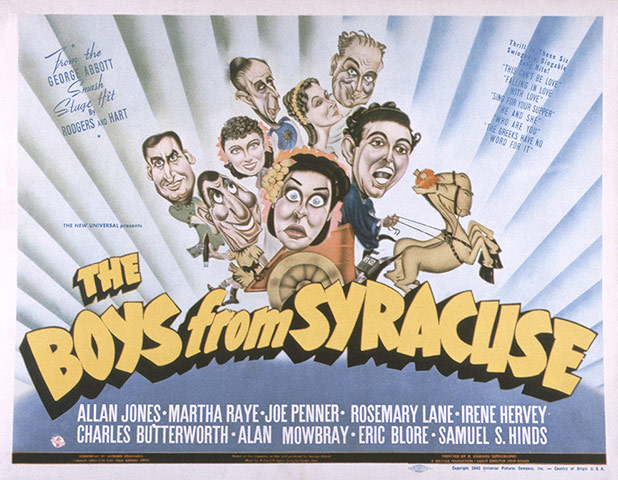
Richard Rodgers and Lorenz Hart’s 1938 Broadway musical – the first ever based on Shakespeare – is a version of The Comedy of Errors, based on a Roman play by Plautus. The 1940 film starred Allan Jones, who played both identical twins, Antipholus of Ephesus and Antipholus of Syracuse, who were separated in a shipwreck as young children. Many mistaken identities later all ends happily. Ronnie Corbett and Bob Monkhouse appeared in a 1963 West End production. Judi Dench staged it at Regent’s Park. Of the many cover versions of This Can’t Be Love – by Diana Krall, Ella Fitzgerald, Frank Sinatra – Stacey Kent’s might just be the best
Photograph: Everett Collection/Rex Features Photograph: Everett Collection/Rex

It’s a long way from Can You Feel the Love Tonight to Hamlet, but think of I Just Can’t Wait to Be King and Shakespearean themes start to resonate. The Lion King, a 1994 Disney film then a stage version, is about lions in Africa but cites the Bible and particularly Hamlet as inspirations. With songs by Elton John and lyrics by Tim Rice, it boasts two bards of its own. The Washington Post called it “Shakespearean in tone, epic in scope” but concluded ”it seems more appropriate for grown-ups than for kids. If truth be told, even for adults it is downright strange.” Never mind. It ranks as one of the highest-grossing hand-drawn films in history Photograph: PR
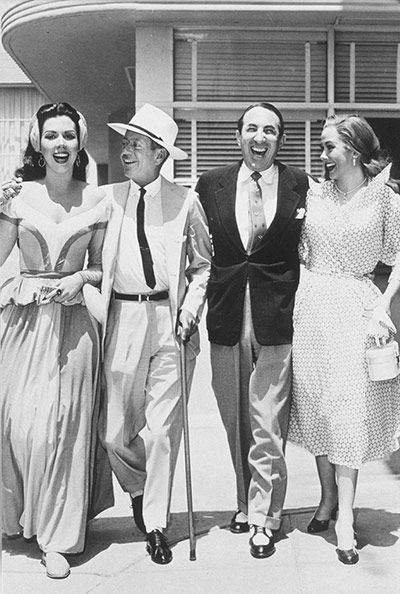
In Cole Porter’s 1948 hit Broadway musical, the central characters are staging The Taming of the Shrew. Life imitates art when the star and his ex-wife and leading lady start sparring. In 1949 it won the first Tony award for best musical. Hits include Too Darn Hot, Where Is the Life that Late I Led, Always True to You in My Fashion. The key to love and life, it turns out, is to Brush Up Your Shakespeare: “Just declaim a few lines from Othella/And they think you’re a heckuva fella./ If your blonde won’t respond when you flatter ’er/ Tell her what Tony told Cleopaterer” – the more ingenious the rhyme the better Photograph: Rex Features
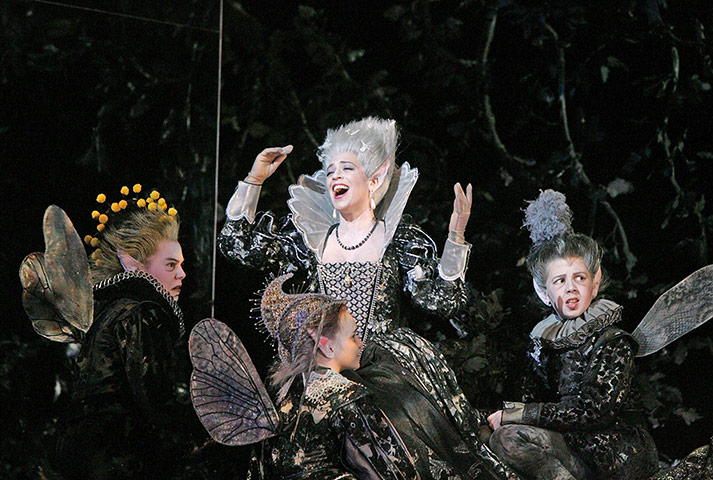
Mendelssohn was first inspired by A Midsummer Night’s Dream in his teens, writing an overture and then in 1842 incidental music, including the famous Wedding March. The orchestral Scherzo, with its giddy, fairy-feet opening and rude, rustic interventions, is a favourite on the piano and as a ballet too. Purcell’s The Fairy Queen camps it up as a masque. Benjamin Britten’s 1960 opera, with Oberon, King of the Fairies, ethereally sung by a countertenor, was written for the reopening of Jubilee Hall on the Aldeburgh seafront. The Donkey Show: A Midsummer Night’s Disco (1999), a Broadway disco-era musical, is probably best forgotten Photograph: Alastair Muir/Rex
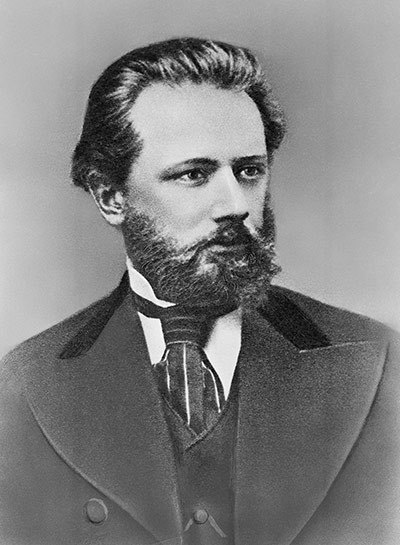
Tchaikovsky struggled with Shakespeare, since he loathed the English, but he wrote incidental music for Hamlet and The Tempest, and the Fantasy-Overture Romeo and Juliet is one of his masterpieces. He liked the play: “No kings, no marches, no boring old grand opera. Just love, love, love!” When the composer Balakirev heard the love theme, he wrote: “This tune is simply DELIGHTFUL. When I play it, I imagine you lying naked in your bath with your lady friend, washing your tummy with hot lather from scented soap.” Tchaikovsky rather preferred men, but the sentiment is sweet. Check out Prokofiev’s brilliant ballet version Photograph: Bettmann/Corbis
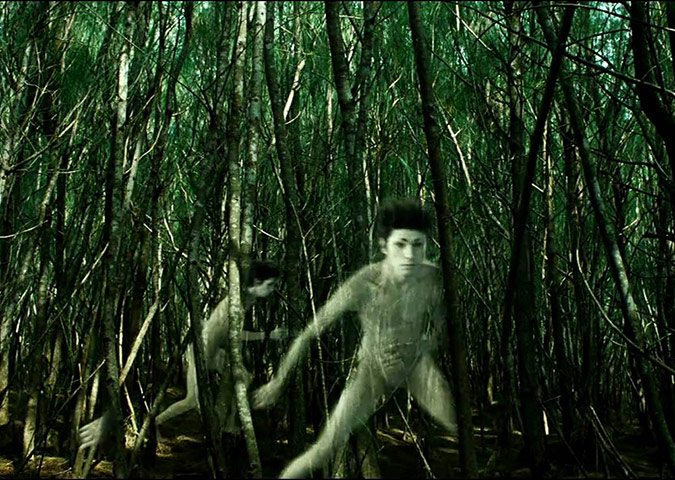
Robert Johnson (1583-c1634), lutenist and composer, worked with Shakespeare, setting lyrics from later plays such as Where the Bee Sucks and Full Fathom Five from The Tempest. Said to be Shakespeare’s most musical play, it has inspired at least 46 operas (including one by Thomas Adès), orchestral works (Tchaikovsky, Arthur Sullivan and Sibelius) and songs (Vaughan Williams, Amy Beach, Michael Nyman). Ben Whishaw’s dreamy Where the Bee Sucks in the 2010 film soundtrack by Elliott Goldenthal no doubt gave teenage girls a new taste for English lessons. Crisp in comparison, Isobel Baillie’s 1943 performance has a virginal charm Photograph: PR

Who is Silvia? is one of Schubert’s best-loved songs, written at the height of his brief career in 1828, shortly before Die Winterreise. The text is from The Two Gentlemen of Verona. It features the lovers of the title and two women, one of whom is Silvia, much wooed daughter of the Duke of Milan. Schubert, whose other Shakespeare settings are Hark, Hark the Lark and Come Thou Monarch of the Vine, reflected the elegance and wit of the original. Of the dozens of recordings, none matches that by the great German baritone Dietrich Fischer-Dieskau. For more recent one-girl Shakespeare hits try Elvis Costello’s Miss Macbeth or the Band’s Ophelia Photograph: Johansen Krause/Getty Images
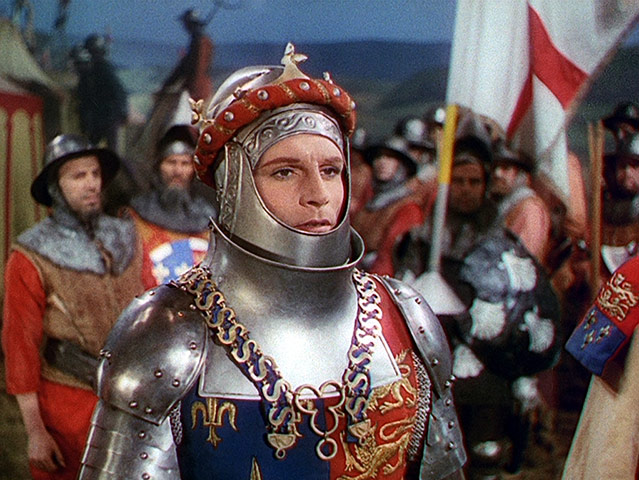
Of all the epic soundtracks for film versions of Shakespeare, none matches those awe-inspiring, patriotic scores William Walton wrote for Laurence Olivier: for Henry V (1944), Hamlet (1948) and Richard III (1955). Since Walton had been earning less than £100 per year, these fiercely demanding commissions, with their deadlines and tight structures, gave him new confidence, though he was unable to rid himself of the idea of film music being “low brow”. Olivier put him straight, saying of Henry V: “The music actually makes the film.” Try watching the Battle of Agincourt with the sound down and you see he’s right Photograph: Rank Film Library

